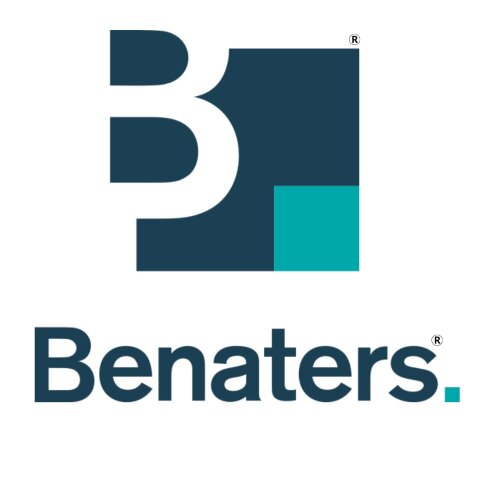Best Financial Services Regulation Lawyers in Johannesburg
Share your needs with us, get contacted by law firms.
Free. Takes 2 min.
List of the best lawyers in Johannesburg, South Africa
About Financial Services Regulation Law in Johannesburg, South Africa
Financial Services Regulation in Johannesburg forms an integral part of the broader framework governing South Africa's financial sector. The regulatory environment aims to ensure the stability and integrity of financial markets, protect consumers, and maintain the overall health of the economy. This regulation is primarily guided by South African national legislation, including the Financial Sector Regulation Act, 2017, and the Financial Advisory and Intermediary Services Act, 2002. These laws are enforced by regulatory bodies such as the South African Reserve Bank (SARB), the Financial Sector Conduct Authority (FSCA), and the Prudential Authority. Johannesburg, being the financial hub of South Africa, hosts various banks, insurers, and investment firms, making it essential to have robust regulatory oversight in place.
Why You May Need a Lawyer
There are several scenarios where individuals or businesses may require legal assistance in the field of Financial Services Regulation. These include:
- Compliance: Ensuring that financial services operations comply with the myriad of applicable regulations.
- Disputes: Handling disputes with regulatory authorities or between financial service providers and consumers.
- Licensing: Obtaining the necessary licenses to operate within the financial sector.
- Mergers and Acquisitions: Navigating the complex regulatory requirements for financial sector transactions.
- Investigations: Responding to government investigations or audits related to financial operations.
Local Laws Overview
Key local laws impacting Financial Services Regulation in Johannesburg include:
- Financial Sector Regulation Act, 2017: Establishes a comprehensive regulatory framework and the Twin Peaks model of financial regulation.
- Financial Advisory and Intermediary Services Act, 2002: Regulates the offering of financial advice and intermediary services to protect consumers.
- Protection of Personal Information Act, 2013 (POPIA): Governs data privacy and protection which is crucial for financial service providers.
- National Credit Act, 2005: Aims to protect consumers in the credit market and regulate credit providers.
- Companies Act, 2008: Provides the legal framework for the operation of companies, including those offering financial services.
Frequently Asked Questions
What is the role of the Financial Sector Conduct Authority (FSCA)?
The FSCA supervises market conduct in South Africa's financial institutions, ensuring that they comply with regulations and treat customers fairly.
Who needs to comply with the Financial Advisory and Intermediary Services (FAIS) Act?
This Act applies to anyone providing advice or intermediary services regarding financial products, requiring them to be duly licensed.
What is the Twin Peaks model in South Africa?
It is a regulatory system that separately manages prudential regulation (by the Prudential Authority) and market conduct regulation (by the FSCA).
When do I need a financial services license?
When engaging in activities such as managing investments, providing credit, or offering advisory services, a financial services license is often required.
How do I file a complaint against a financial services provider?
Complaints can be lodged with the relevant ombudsman or the FSCA, depending on the nature of the service and the issue at hand.
What are the penalties for non-compliance with financial regulations?
Penalties may include fines, license revocation, or even criminal charges depending on the severity of the non-compliance.
How is consumer protection ensured in the financial services sector?
Regulations such as the FAIS Act and the National Credit Act play key roles in protecting consumers against unfair practices.
What is the significance of the POPIA for financial firms?
The POPIA mandates financial firms to protect customer data and implement strict data management policies.
Can foreign companies offer financial services in Johannesburg?
Yes, but they must comply with the local regulatory requirements, which may include obtaining the necessary licenses.
How does the Johannesburg Stock Exchange (JSE) fit into financial regulation?
The JSE operates under regulations set by the Financial Markets Act, ensuring market integrity and investor protection.
Additional Resources
For further assistance or information regarding Financial Services Regulation in Johannesburg, consider the following resources:
- Financial Sector Conduct Authority (FSCA): Offers guidance on compliance and provides consumer protection.
- South African Reserve Bank (SARB): Monitors monetary policy and financial stability.
- Financial Services Board (FSB) Publications: Offers insightful documentation and circulars on regulations.
- Legal Practitioners in Johannesburg: Educated on recent legal changes and capable of offering expert advice.
- Financial Planning Institute of Southern Africa (FPI): Provides resources for financial professionals.
Next Steps
If you require legal assistance in Financial Services Regulation, consider taking the following steps:
- Identify a legal issue or requirement you are facing related to financial regulation.
- Consult with specialized legal practitioners who have experience in financial services law.
- Prepare all necessary documentation and background information ahead of your consultation.
- Explore introductory meetings or workshops offered by local law firms to understand your legal obligations better.
- Stay informed about changes in local regulations through trusted legal bulletins or newsletters.
Lawzana helps you find the best lawyers and law firms in Johannesburg through a curated and pre-screened list of qualified legal professionals. Our platform offers rankings and detailed profiles of attorneys and law firms, allowing you to compare based on practice areas, including Financial Services Regulation, experience, and client feedback.
Each profile includes a description of the firm's areas of practice, client reviews, team members and partners, year of establishment, spoken languages, office locations, contact information, social media presence, and any published articles or resources. Most firms on our platform speak English and are experienced in both local and international legal matters.
Get a quote from top-rated law firms in Johannesburg, South Africa — quickly, securely, and without unnecessary hassle.
Disclaimer:
The information provided on this page is for general informational purposes only and does not constitute legal advice. While we strive to ensure the accuracy and relevance of the content, legal information may change over time, and interpretations of the law can vary. You should always consult with a qualified legal professional for advice specific to your situation.
We disclaim all liability for actions taken or not taken based on the content of this page. If you believe any information is incorrect or outdated, please contact us, and we will review and update it where appropriate.
















